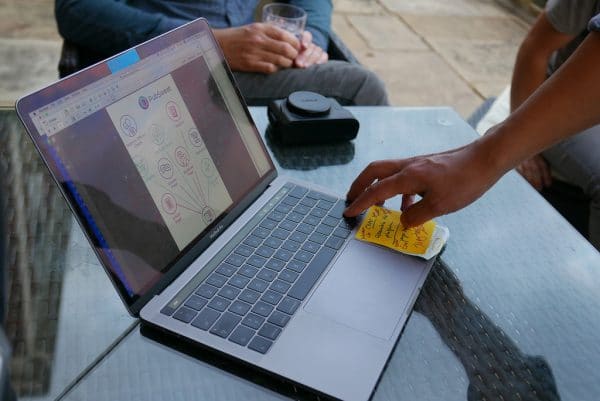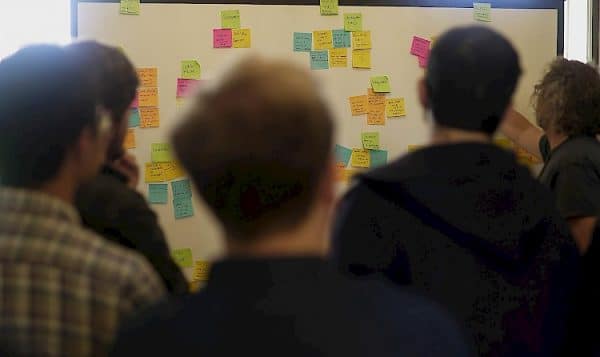Why Book Sprints work
Our recent Book Sprint in Cambridge was unique because the founder of Book Sprints, Adam Hyde brought his organization, the Collaborative Knowledge Foundation (Coko) together to do a Book Sprint. He also got to participate for the first time in a methodology he had developed, taking a seat at the table for the first time as a writer and not as a facilitator. We’ll talk here about why Book Sprints work.
While Book Sprints now are used to write all kinds of books from academic textbooks to NGO handbooks to government policy papers, the origins of the methodology lie in software documentation. And this is what Adam was here to do this week. He was part of a group of writers documenting PubSweet, a publishing ecosystem Coko has developed to optimize the way that academic book and journals are produced. In the Sprint they got to test out Editoria, Coko’s new online book production platform which will soon become the main workhorse for Book Sprints too.
Adam shares some of his insights into why Book Sprints work from the point of view of a client:
Books can be produced faster than you think

On day 3 I was already able to send a bunch of people from the Shuttleworth Foundation something that looked like a book. We were still writing it and they were getting a PDF that was all beautifully formatted, it looked gorgeous, had lots of nice illustrations in, coherent narratives, partially finished. But that in itself was even more impressive because the book itself, the product was being developed at the same time the content was being written and there’s still nothing else out there that does that. We were really delivering on the promise of zero to book in five days.
15 minds are far better than 1

In a normal book production process for software documentation, a company hires a technical writer to write it. They will have to go out and interview everyone to get an understanding of what that software is. Everyone they interview will have a different perspective – different stakeholders, different visions at play. Then the writer has to synthesize all this content they collected before they can document it. What this person is doing is creating a mental model of a complex system and how to explain it to a broader audience. This process normally takes 3 to 9 months. In a Book Sprint we achieve a shared mental model on the first day. Because we have all the stakeholders in the room and they share their understanding of the topic with each other, in real time, and deconstruct each others lexicon in an attempt to find common ground. From this point they can already start explaining it in written text.
Collaboration makes for a better output

If you write something yourself, you really get lost in it, you can’t actually tell if its good anymore. When you collaborate you write something and then you pass it on to someone else, they can see those mistakes you didn’t see, talk to you about them and see what you were trying to achieve, improve what you wrote and add their experience to it as well. Over the course of a week value of a written text increases. It gets better at what it’s trying to say, it gets more refined. It becomes more consistent with the overall narrative because people throughout all parts of the process are going through the book and making things align. That’s really astonishing. You have a group of 10 people walk into a room and, because of the collaboration enabled by the facilitator, you have a very coherent narrative at the end.
He also told us he found it exhausting and he even had moments of feeling bad for all the times he had facilitated Book Sprints and had pushed other people so hard. Anyone who has been through a Book Sprint will agree, it is exhausting. But definitely worth it!
